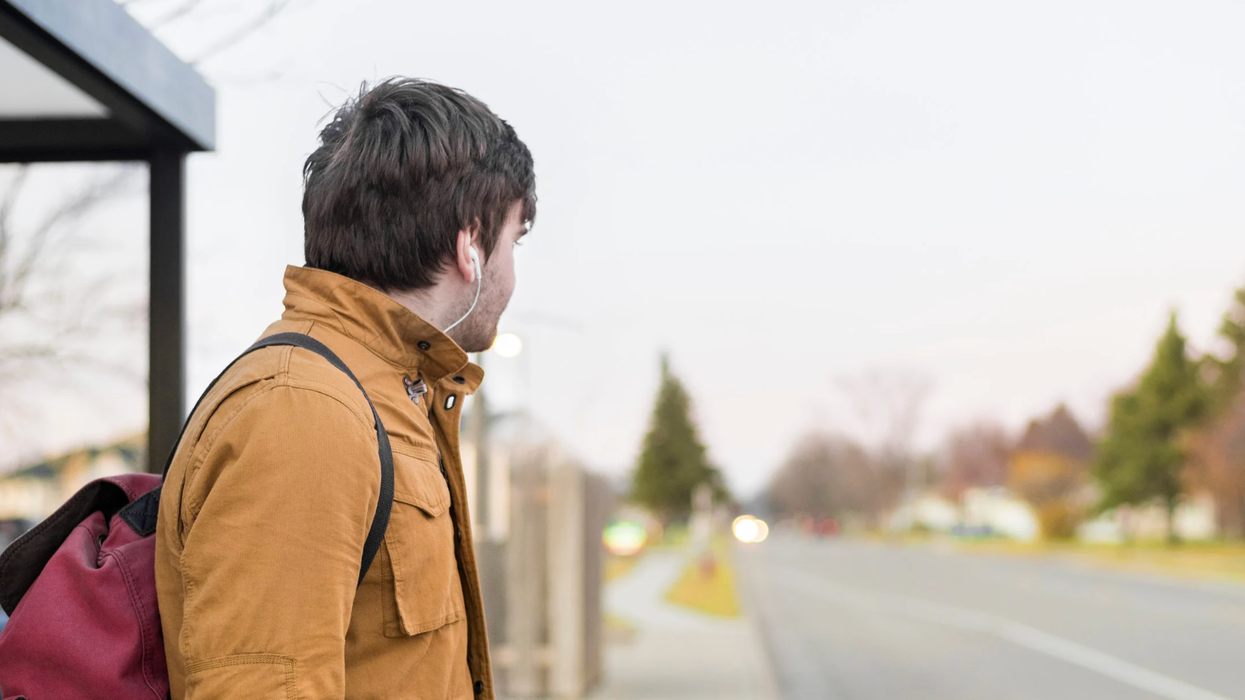Elvina Beck, the 31-year-old co-founder of PodShare, has an entrepreneur’s knack for tech-savvy euphemisms—the kind of linguistic flourishes that can take something ordinary, even unappealing, and rebrand it into an emerging locus of disruption. For example, the shared live/work spaces that her company provides are not hostels or hotels, but a collection of “membership-based housing.” The loft-style quarters are furnished with what you and I might call bunk beds. To Beck, they’re “pods.” The people who cohabitate in these pods aren’t roommates—they’re “podestrians.” That $900 a month that podestrians pay isn’t rent—it’s a “membership fee.” (Pods also run $30 to $40 a day for shorter stays.) If you have membership to one PodShare, you have membership to all of them. “You don’t have an address,” Beck says. “You have an access pass to a bed, a desk, a shower, a kitchen. You live in the cloud with a backpack, the clothes on your back, and whatever’s in your head.” It seems Podshare’s aim is to get us to live less like our parents and more like our data.
One windy morning at the newest PodShare in downtown Los Angeles, Beck and her business partner, Kera Package, 27, are standing in a billow of sawdust, the room littered with wood beams and studs. The site is located at the edge of the booming Arts District and will soon be home to 24 pods. A few weeks before the PodShare opens for business, the raw skeletons of six pods stand erected against one wall. Structured like display cases for human bodies, the pods face outward to give residents a clear view into their fellow podestrians’ sleeping quarters. Each individual pod is part of a single that’s outfitted with a TV and electrical outlet, so that it may be used as a work space in the daytime. Members’ names will be written on chalkboard labels on each bed. There’s a small kitchen in one corner of the room; a staircase in the opposite corner leads up to a second-floor work space. This location is the third in LA, but Beck has visions for pods around the globe.
This kind of mobility is designed for a generation increasingly turning to freelance work for flexibility or supplemental cash. According to a study commissioned by the Freelancers Union and UpWork, 34 percent of the American workforce is composed of freelancers. Among millennials, that figure rises to 38 percent. These people are working from coffee shops and libraries, coworking spaces and their own apartments. They’re largely unmoored from the trappings of traditional office life and can work remotely from whatever Wi-Fi-enabled corner of the earth they can afford.
But they can’t afford much. A study by the U.S. Department of Commerce found that the homeownership rate has dipped to 63.8 percent, the lowest since 1989. In the past decade, the ownership rate among Americans ages 18 to 34 has declined by 7.3 percent. But they can’t afford rent either. In the urban cities where young people congregate, rent is skyrocketing. Just a few blocks away from PodShare’s downtown location, a $165 million mixed-use apartment complex, rents out one-bedrooms starting at $2,200 a month. A 2014 USC study calculated that one would have to earn $33 an hour to afford an average apartment in L.A. So maybe you don’t rent an apartment. Maybe you rent a bed.
[quote position="full" is_quote="true"]You don’t have an address. You live in the cloud with a backpack, the clothes on your back, and whatever’s in your head.[/quote]
Coliving companies are emerging to fill this need. There was Campus, a company founded in 2013 that offered members rooms in expensive rental markets like San Francisco for rents ranging from $1,000 to $2,200. The company closed down in August 2015, unable to turn a profit. There are also international companies like CoWoLi and Nomad House, which cater to “digital nomads” with shared living locations around the world. General Assembly, an educational company offering classes in professional skill development, recently announced its own coliving venture, called Common. And WeWork, the insanely successful coworking company, has started renting out living spaces—members will get a Murphy bed and curtains for $1,375 at the New York City campus.
These companies, awash in venture capital, have become so numerous that they’ve penetrated the fictional world. Cory Rosen, a character in Tony Tulathimutte’s Private Citizens, a satirical novel about four millennials living in 2007 San Francisco, goes to work every day at a “live/work loft in SoMa.” One morning, she arrives at the office to find her boss’ dead, stinking body face down on his desk. “In Silicon Valley the separation of work and home life has always been really permeable,” Tulathimutte says. “In this conception, boundaries are artificial and bad, and professional and personal life should ideally be so close as to be indistinguishable.” In a PodShare, these boundaries disappear altogether. You can wake up, flip your screen on, and get to work without ever leaving your bed.
Companies like PodShare promise to deliver not just space, but community and social experiences. They exploit a nostalgia for a communitarianism we no longer experience, ostensibly because we’re all too busy Instagramming our lunches and tweeting Vines, hyperactively helming and promoting our personal brands. They offer the chance to live in a modern-day commune without having to give up Wi-Fi. There’s no commitment either. “It’s a very flexible jump-on, jump-off program,” says Beck. “There’s no security deposit. There are no furnishing costs. You don’t need to go to Ikea and buy things.”
Beck started the first PodShare in Hollywood in 2012— she gave up her apartment and moved into a pod that year. Package moved in a year later. For two years, the location housed 10 pods. But when their landlord died, the man who took over, said he didn’t want a “cheap hostel” in his building, according to Beck. “I was like, ‘Seriously, we’re a very quiet community. We just do our own thing. We do a good thing. We sell community.’” She was eventually forced to convert the space to a coworking location in 2015, saving only two of the pods. Beck says that while it operated, the Hollywood PodShare maintained an average 92 percent occupancy rate. “People were booking, they were extending,” she says.
When the inaugural PodShare shut down, Beck and Package drew on this devoted fan base by launching a “Save PodShare” Indiegogo campaign aimed at funding the next two locations: one in the Arts District and one in Los Feliz, a neighborhood popular with LA’s creative class. In the meantime, they ran a six-month pop-up out of a downtown warehouse for the Oxygen reality TV show Quit Your Day Job.
This is how 20-year-old South Carolina native Razzy Dyer discovered the company. She stayed at the pop-up PodShare for four days while attending a film festival in town. By the end of her stay, she had a PodShare tattoo inked on the back of her neck. For the uninitiated, a tattoo may seem like an extreme gesture of devotion—the PodShare website even boasts a photo gallery of tattoos like these—but Dyer says that stay changed her life. “I came here thinking I was going to hate LA” she says. “I was just coming here to do this film festival and then leave. And I ended up missing half the stuff at the film festival and staying in the PodShare.” A few months later Dyer came back, staying in the Hollywood PodShare for a month while she looked for an apartment.
[quote position="full" is_quote="true"]These aren’t people on your phone. They’re living human beings, forced to share a space with you. You’re going to share a bathroom with them, interact with them in the kitchen, watch them sleep.[/quote]
This appears to be the best use for a PodShare: a transitional home. On a recent afternoon at the downtown location, Emerson Dameron, a 37-year-old freelance writer and UX designer, is among some 11 podestrians staying in the newest PodShare. He moved back to LA from Chicago a few months ago and bounced around the city, house-sitting, couch-surfing, and staying in hostels. The last time he was living in LA., in 2011, he was paying $800 for a studio. “I thought after a couple of paychecks and a couple of weeks, I would find a place for around a $1,000 a month and move in and have a home,” he says, lounging in one of a smattering of common areas. That was not the case. So he found PodShare on Airbnb and booked for a couple of days. Now, he’s contemplating another week, maybe another month. “Left to my own devices, I tend to spend too much time by myself,” says Dameron. At the PodShare, he is discouraged from self-isolation. He’s sharing a room with a dancer who’s auditioning for the L.A. cast of Hamilton, a Mexican techno producer in town for a club gig, and a writer who moved from Chicago.
Beck calls these people “insta-friends.” These aren’t people on your phone. They’re living human beings, forced to share a space with you. You’re going to share a bathroom with them, interact with them in the kitchen, watch them sleep. “The more we share, the more we kill racism, sexism, ageism, and any other ’ism,’” says Beck. “Maybe we don’t want to put up a wall in Mexico anymore ... because we’ve taken down the walls in our dormitory-style living.”
Being in close quarters also increases the rate of “collisions” one might have, says Beck, borrowing a term from Zappos CEO Tony Hsieh. He uses the word to describe the quotidian encounters of everyday life—“what you and I would just call ‘bumping into people,’” says Beck. At a 10-pod location, for example, you have a possible collision rate of nine. Potentially, these collisions turn into professional or personal contacts—for example, Beck was able to facilitate a connection between a Yelp Elite member and a Yelp employee staying at a PodShare at the same time. She’s working on a PodShare app that will perform this kind of function: introducing PodShare members to each other through profiles that reveal their LinkedIn occupation and mutual Facebook friends.
These collisions, however, can only produce platonic or professional relationships. Sex is off-limits in the pods. Beck admits her love life has “suffered a little” ever since she started living the “pod life,” as she calls it. The official policy, she says, is “anti-privacy.” Members aren’t even allowed to put up curtains. Podestrians are always facing each other, a panoptic view. “It’s kind of like a surveillance camera with arms,” she says. “You can’t do anything crappy when you’ve got all these eyeballs on you.”
But not everybody plays by the rules. One afternoon at the downtown PodShare, a European member sheepishly admits to having had sex in the pods a few days prior. “You’re joking, right?” Beck asks him. He insists he’s not. For the next 15 minutes, Beck and Package patiently, and awkwardly, explain to him that they’ve kicked out other members for lesser offenses. Beck asks if he felt uncomfortable having sex in a room with at least a dozen other people sleeping around him. “No,” he says, oblivious.
In her Indiegogo campaign video, Beck jokingly tells her funders that their contributions will help “end world loneliness,” something she and her co-founder don’t experience very often. They’re surrounded by podestrians 24 hours a day. If there are downsides to living where you work, Beck and Package can testify personally to them.
“There was a time when I was playing dodgeball four nights a week ... to get out of the PodShare, just so I can come back and be like, ‘Welcome, here’s my favorite coffee shop. Let me tell you how to get to the metro,’” says Package.
“People always want stuff from you, information,” adds Beck. “They want your attention.” “You’re always on,” says Package.
“We’re giving up our lives, our privacy, our Saturdays, our finances. We’re giving full time,” says Beck. “There’s no going home. This is home.”
Goodbye Cubicle, Hello Nightclub
The success of WeWork comes down to the art of branding
This March, WeWork became the world’s sixth most valuable private startup when a $16 billion valuation put it on par with Snapchat and ahead of notable ventures like SpaceX, Pinterest, and Spotify. With over 90 locations across North America, Europe, and Asia, the six-year-old coworking chain founded by Adam Neumann and Miguel McKelvey tops a crowded market that includes similar outfits, like Regus and NeueHouse. “They didn’t invent the model. They made it relevant,” says Dave Heath, CEO of Bombas, a socially conscious sock company that briefly operated out of a WeWork office in New York. “They’re not selling office space. They’re selling culture.” Much like Equinox, which transformed the gym into a temple, WeWork has rebranded the dreary corporate environment as something more like an exclusive nightclub. “It’s pretty much the same psychology,” says Micael Dahlen, a professor at the Stockholm School of Economics in Sweden. “The image and the ambiance signal a certain crowd, and people who identify with, or wish to be part of, that crowd are attracted. ‘It’s not just work anymore. It’s who I am, who I want to hang out with, who I want to be.’” WeLive, the company’s new cohousing initiative, takes a similar approach. Leases for its first residential dwellings opened up in April in Manhattan and in May just outside Washington, D.C.—looks like the work-life party never has to end.






















